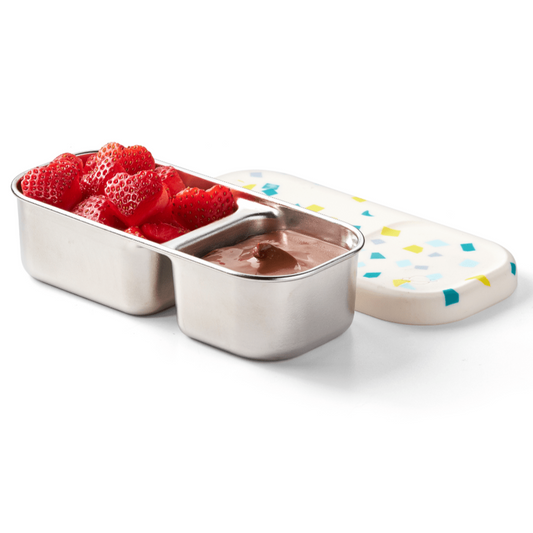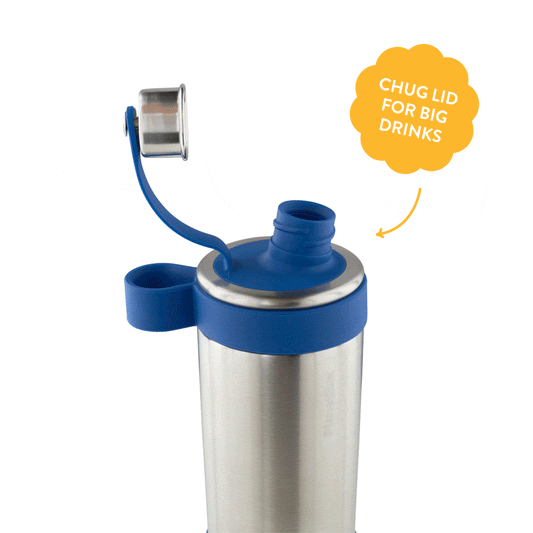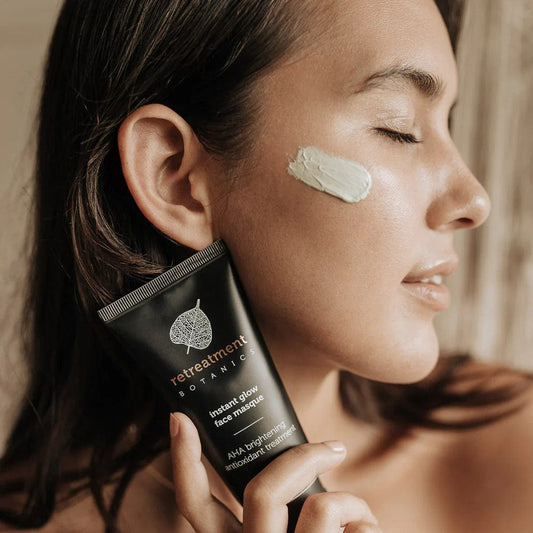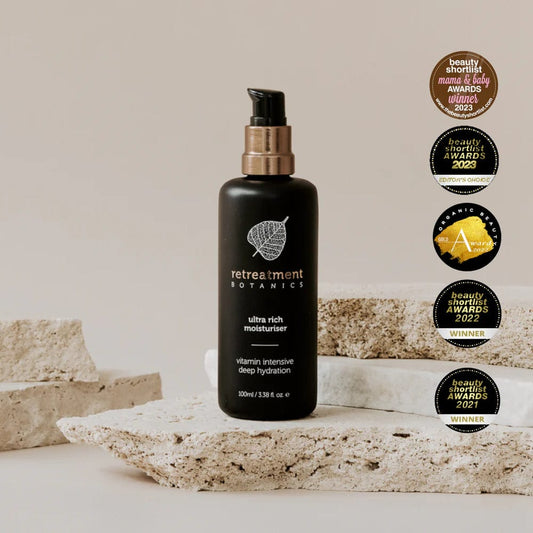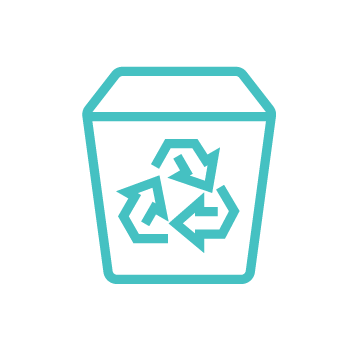
The start of a new year has many of us setting goals to live more gently on our planet. There is much to learn from the way that our grandparents lived with simplicity, thrift, making do, growing their own food, making their own, reuse and respect for precious resources.
We share some memories from the Biome team, and some wonderful stories from our blog reading community!
Reduce Waste
Avoid food waste by making chutneys, sauces and jams from excess homegrown fruit and veggies - Michele
Put butter on stale cake if it's 'a bit dry' - Caitlin
Save Energy
Avoid wasting energy by switching appliances off at the wall, boiling water for tea and coffee using a gas stove top kettle, and never using a microwave, dishwasher or aircon! - Michele
Appreciate Nature
My Grandma (with my grandpa) travelled extensively around Australia. Hearing their stories about beautiful landscapes and special places around our country as a kid helped to instil a love for the earth and nature in me. - Tom
Make Your Own
Both my Grandma & Grossmami have are very creative & have been very clever with their hands. Grossmami used to hand knit socks for basically all her family – children & grandchildren – she would then do all the mending for them as well (I know a few family members were embarrassed to have hand knitted socks – but for the most part they were well loved!). My Grandmother is a fantastic seamstress and would make clothes for her family as well as for other people on request, she is also great at mending & making quilts which she would often create for various local charities. Grandma also loves to hand-make cards and she will often recycle cards & pictures from magazines to make them. Grandma has also held various sewing and creative classes for ex-prisoners, helping them to rehabilitate and learn some practical skills! I would say both my Grandmas have inspired me by using their skills to create hand made things for others rather than just buying new. - Bec
Limit Car Travel
Neither my grandmother or grandfather ever drove a car. They took public transport everywhere. She never travelled on an airplane and never wanted to. A trip to the botanical gardens or a night at the theatre was as much travel as she ever needed. - Carolyn
Grow Your Own Veggies
She loved her garden and built up the sandy beachside soil with her veggie scraps and tea leaves, working them into the soil every night at dusk, so that her flowers and vegetables flourished in soil they would never expect to flourish in. - Carolyn
From Dr Susan
"Never mind my grandmother or mother (my grandmother was born in 1897 and my mother in 1928 and lived through the Depression), when I was growing up, things were vastly different. There was no takeaway food available, except for fish and chips (a treat), which was wrapped in newspaper. We had chickens and ducks and many fruit trees: my mother would make jam. We never had bought sweets: my mother made fudge and coconut ice.
While we didn't grow our own veggies, my mother would buy fruit and veg by the carton in season only, and of course, there was a limited range, which comprised onion, cabbage, carrots, pumpkin, squash, cauliflower, potatoes, tomatoes, iceberg lettuce and eggplant. And they weren't all perfectly shaped and sanitised to within an inch of their lives!!! And very little pesticide or fungicide or growth hormones and the like were used. Roast chicken was a huge treat, as this was pre-battery hen days. All our food was cooked at home, of course, with leftovers being a regular feature. We certainly didn't suffer all the food fads that float around now, which clearly exist as they are perpetrated by the people who seek to make money from them (I'm thinking of quinoa, kale, pomegranates and so on.
My grandmother never got on a plane in her life (and neither did her eight siblings); my mother flew for the first time when she was 54, as my sister was living in the UK. My grandmother and my mother both sewed. I had my first shop-bought dress when I was 19, and earning my own money for the first time. We had one pair of shoes (for school and smart wear) and sandals for summer. They didn't wear makeup, apart from lipstick, which was smudged on their cheeks as blusher. They certainly didn't have their hair dyed (that was only for prostitutes) and nor did they go to hairdressers more than once a year, or so. Mostly, they both wore their hair clipped up in buns.
I don't remember many toys at all. We played outside all the time, with rope swings and tree house, balls and a sandpit, and later, trikes and bikes. We had no television (there was none at the time in that country), and ice-creams and ‘fizzy drinks' were a once a year treat, perhaps on the day we went to town to do Christmas shopping and see the lights. In fact, my mother even made the cordial we drank, from lemon juice, creme of tartar, ascorbic acid and sugar. My mother and grandmother (and every adult we knew) never drank alcohol at all, not for any religious reason, but because it simply wasn't the ‘done' thing, apart, perhaps, from a little pre-prandial sherry. But they all drank tea copiously, which was made from loose leaves, in a teapot, with a strainer and a jug of hot water on the side, in case it got too strong.
There was no plastic – a bit of bakelite, perhaps – and no detergent (we used soap). So obviously, we used paper and cardboard for packing things, with wax paper for our school sandwiches. Before supermarkets appeared in the early 60s, we used the local grocer. You asked at the counter for what you wanted – the exact amount of cheese or rice or beans – which was weighed and packed in paper. Rice, beans, potatoes and that kind of thing came in large, open hessian sacks, which were on the floor. The dairy (selling milk, cream, cheese and eggs) was a separate shop, as was the greengrocer, the butcher and the fishmonger. Each of the proprietors knew their stock and knew their customers – strong glue to hold communities together. Butchers had straw or woodchips on the floor to catch any drops that might fall.
After a storm, people would pick up kelp from the beach to put on their gardens – it was considered to be a natural fertilizer.
At school, throughout primary school, we had needlework classes, during which we made, by hand, things like baby rompers and skirts; we knitted hats and jumpers, and embroidered tray clothes (I wonder if people even know what a tray cloth is these days!).
I am now in my late 60s, fit as a fiddle and happy as Larry. Did me no harm whatsoever to live like that."
A response from Carole
"Love Dr Susan's post – resonates with me as I am 67, recently retired and loving being home to have the time to do the things my grandmother did. We now have a veggie patch and my young friends at the yoga school are astonished when I tell them I made the clothes they so admire. We all learnt to sew and knit and cook. We also learnt to budget and make do with what we bought, mending and re-using. I guess that is why we were able to purchase our house which was paid off long ago – no take away coffee and meals. Outings to the beach, movies, bush walks, galleries and free concerts and we still do this today. Our life is simple and we tread lightly on the planet. I thank the Biome store for giving us what we need to continue this simple life “plastic free” – now what happened to those fly swats I once saw on the website?"
From Kym
"My parents knew thrift which resulted in a light footprint. Dad had a massive veggie garden and we ate seasonal only. Mum managed hens and a milking cow. The hens ate all kitchen compost and the cow cleaned up the grass clippings.
Lights were turned on after dark and powerpoints switched off immediately following use.
Dad resolved shoes from car tyres. Mum made clothes from old clothes- kids PJs made from men's shirts, for example.
We always cooked at home and when we traveled always had a hamper. I grew up without takeaway food and still pack a lunch.
Furniture was brought second hand and restored (though these days, the quality of furniture is poor and not always able to be reused, which is a part of the broader ‘consumerism problem').
All in all, thrift, reuse and moderation were my parent's mantle. These are simple concepts until actually enacted in the ‘instantaneous' world of today. Convenience rules.
 The start of a new year has many of us setting goals to live more gently on our planet. There is much to learn from the way that our grandparents lived with simplicity, thrift, making do, growing their own food, making their own, reuse and respect for precious resources.
We share some memories from the Biome team, and some wonderful stories from our blog reading community!
The start of a new year has many of us setting goals to live more gently on our planet. There is much to learn from the way that our grandparents lived with simplicity, thrift, making do, growing their own food, making their own, reuse and respect for precious resources.
We share some memories from the Biome team, and some wonderful stories from our blog reading community!

 Back soonVendor:PlanetBoxRegular price $29.95Regular priceUnit price / per
Back soonVendor:PlanetBoxRegular price $29.95Regular priceUnit price / per
 Back soonVendor:PlanetBoxRegular price $11.95Regular priceUnit price / per
Back soonVendor:PlanetBoxRegular price $11.95Regular priceUnit price / per




